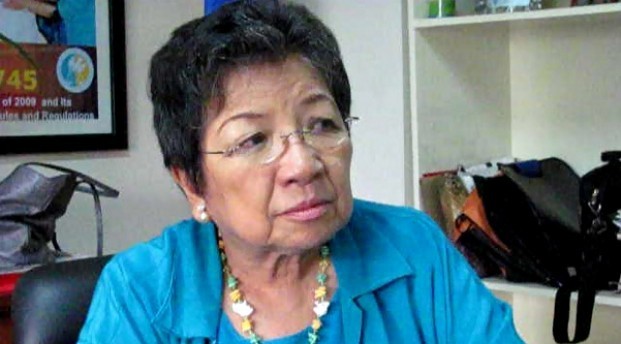Ex-CHR chief to question basis of martial law before SC
Should Congress fail to convene a joint session to discuss President Duterte’s imposition of martial law in Mindanao, the former head of the Commission on Human Rights (CHR) said that they will resort to the Supreme Court to question the basis of the order that is affecting the lives of at least 20 million residents.
Etta Rosales, former CHR chair, said that their lawyers are already looking into the petition they would file in the High Court to not only put “pressure” in both the House of Representatives and the Senate to convene a joint session to approve or revoke the President’s declaration of martial law, but to also question the validity of the imposition of martial law.
She surmised that the reason that Congress’ top leadership may be hesitant to call for a joint session is because they are worried of the number of “independent-minded” lawmakers who could say that there was no need for martial law to combat the threat of the terrorist Maute group, which has wreaked havoc in Marawi City.
“[W]ithin 24 hours after the declaration of Proclamation No. 216, Congress should immediately convene in a joint session. There’s no need for a concurrent resolution. They have so many delaying tactics,” Rosales said at a press forum on Monday.
Under the 1987 Constitution, the Supreme Court may review a petition questioning the factual basis of the proclamation or the suspension of the privilege of the writ of habeas corpus. It must promulgate a decision within 30 days from the filing of such a petition.
Article continues after this advertisementFormer Solicitor General Florin Hilbay said that it is an “immediate concern to make Congress comply with its constitutional duty to convene and deliberate” the martial law declaration.
Article continues after this advertisement“Filing a case before the Supreme Court should happen after we get a sense of where the Congress is. [It’s] the place where people can be informed about the factual basis for the declaration of martial law. Whether it is sufficient or not, what the reasoning of Congress would be for ratifying or revoking it is what we need to see before we file a case,” he said.
Rosales pointed out that given that the country has Republic Act 9372, or the Human Security Act of 2007, there was no need for martial law to combat terrorists such as the Maute group, which is aligning itself to the Islamic State in the Middle East. She noted that following Mr. Duterte’s logic, Germany and the United Kingdom should have also imposed martial law when they were hit by terrorist attacks.
“The AFP (Armed Forces of the Philippines) is capable enough to address the Maute group problem,” she said.
She pointed out that what Mr. Duterte is doing by imposing martial law in Mindanao, and even warning that he may extend it to cover the entire country, is that he is “testing the waters” as to the extent on how far he will be supported by the people. Rosales added that he is also bringing out “the beast” in authorities by saying he would protect them should they commit atrocities, such as rape.
“He is behaving outside the law,” she said. “He is behaving like a lawless element in trying to silence and neutralize the other lawless elements within the Maute group.”
Sen. Risa Hontiveros pointed out that while they are against the terroristic acts of the Maute group, they are also opposed to Mr. Duterte’s “creeping authoritarianism.”
RELATED VIDEO
